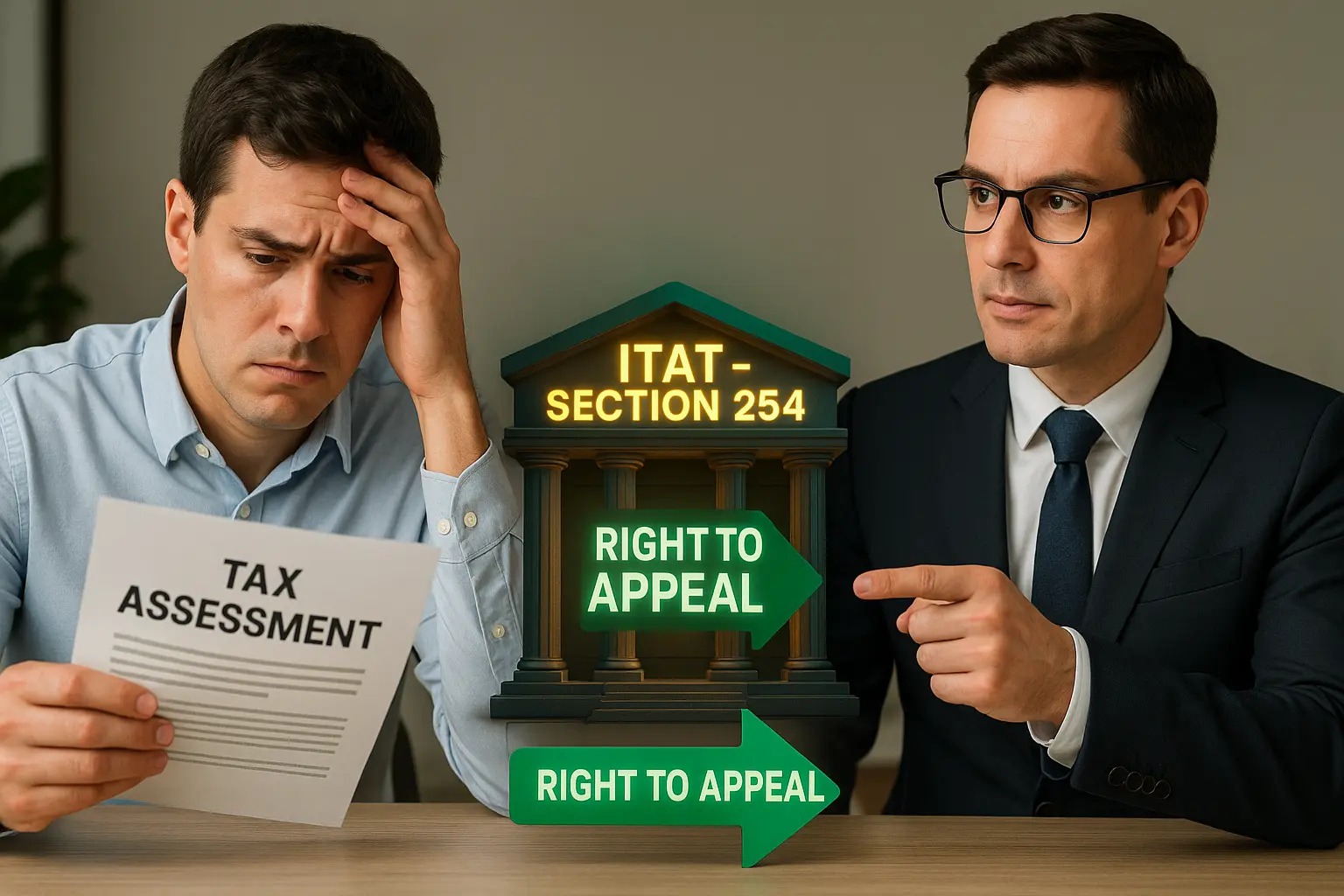
Imagine waiting eagerly for your income tax refund, only to discover that it has been held back or adjusted by the Income Tax Department. This situation is governed by Section 245 of the Income Tax Act—a crucial but often misunderstood provision that allows tax authorities to adjust any pending tax liability against your refund.
In this guide, we’ll explain in simple terms what Section 245 is, how it works, & what steps you can take if you receive a notice under this section.
What is Section 245 of the Income Tax Act?
Section 245 of the Income Tax Act, 1961, empowers the Income Tax Department to adjust any tax refund due to an assessee (i.e., the taxpayer) against any outstanding tax demand for the same assessment year or any other assessment year.
In short:
👉 If you have unpaid taxes from previous years, the department can legally adjust your current year’s refund to settle those dues."
This is called set-off or adjustment of refunds.
Why is Section 245 Important?
The primary goal of Section 245 is to ensure that the Income Tax Department recovers legitimate outstanding dues before issuing any refunds. This helps:
✅ Prevent misuse of tax refunds by individuals who have unpaid tax liabilities.
✅ Speed up the collection of past dues without the need for lengthy litigation.
✅ Allow taxpayers to reconcile their accounts.
It’s a tool for efficiency, but it must be applied fairly and only after proper communication with the taxpayer.
How Does Section 245 Work? (Step-by-Step)
Here’s how the process under Section 245 typically unfolds:
1️⃣ The Income Tax Department processes your return and calculates the refund amount.
2️⃣ It checks your tax records for any outstanding demands—this could be from previous years or assessments.
3️⃣ If any demand is found, the department issues a Section 245 intimation—this is a formal communication where:
- The refund amount is stated.
- The outstanding demand amount is mentioned.
- The proposed adjustment is disclosed.
4️⃣ You are given a time window (usually 30 days) to respond or raise objections.
5️⃣ If no response is received, the refund is adjusted against the demand.
6️⃣ If you respond, the department considers your reply before taking action."
Types of Tax Demands That Can Trigger Section 245:
- Unpaid advance tax.
- Outstanding self-assessment tax.
- TDS mismatch issues.
- Interest or penalty demands.
- Tax demands raised after scrutiny assessments.
Important Legal Safeguards:
Under the provisions of Section 245:
✔ Refund can only be adjusted after giving prior intimation to the taxpayer.
✔ The taxpayer has the right to respond or object to the proposed adjustment.
✔ Adjustments must be for legally valid and pending demands.
What Should You Do If You Receive a Section 245 Intimation?
Receiving a Section 245 intimation can be unsettling, but here’s what you should do:
✅ Log in to the Income Tax e-Filing portal.
✅ Check the details of the outstanding demand under the “Pending Actions” tab.
✅ Download the demand order to verify its validity.
✅ If you agree, no action is required—the refund will be adjusted automatically.
✅ If you disagree, you must file an online response or rectification request within the stipulated time.
👉 Pro Tip: Even if you filed your return correctly, sometimes demands arise due to mistakes in processing, outdated records, or a mismatch of TDS. Always cross-verify before accepting.
Common Scenarios Leading to Refund Adjustment:
1️⃣ Mismatch in Form 26AS or Annual Information Statement (AIS).
2️⃣ Delayed response to previous tax notices.
3️⃣ Processing errors by the Income Tax Department.
4️⃣ Omission of certain income in earlier returns.
Frequently Asked Questions (FAQs):
Q1. What is Section 245 of the Income Tax Act?
It allows the Income Tax Department to adjust your refund against any pending tax demand after giving you prior intimation.
Q2. Can I stop the adjustment under Section 245?
Yes, you can object by replying to the notice on the Income Tax portal. The department will consider your response before proceeding."
Q3. What happens if I ignore the Section 245 intimation?
If no response is filed within the time allowed, the department will go ahead with the adjustment.
Q4. Will I get the balance refund after the adjustment?
Yes, if the refund amount is higher than the demand, the balance will be credited to your bank account.
Q5. How can I avoid such adjustments?
File accurate returns, reconcile Form 26AS, and clear any old demands before claiming refunds.
Recent Trends & Updates:
With the faceless assessment scheme and automation in tax processing, Section 245 adjustments are now faster & more transparent. However, mistakes and system glitches can still cause genuine hardship for taxpayers.
The CBDT (Central Board of Direct Taxes) has also issued guidelines to ensure that adjustments are made only after providing proper opportunities to taxpayers.
Conclusion:
Section 245 of the Income Tax Act is not something to fear—it is a mechanism designed to maintain the integrity of the tax system by allowing the government to recover dues while issuing refunds. As a responsible taxpayer, always stay updated on your pending tax demands and respond to notices promptly.
If you receive a Section 245 intimation, don’t panic—verify, respond, and resolve it calmly.
👉 Received a refund adjustment notice under Section 245? Don’t worry—our experts at Callmyca.com can help you verify, respond, and resolve it quickly so you get your rightful refund without stress. Book your consultation now!











